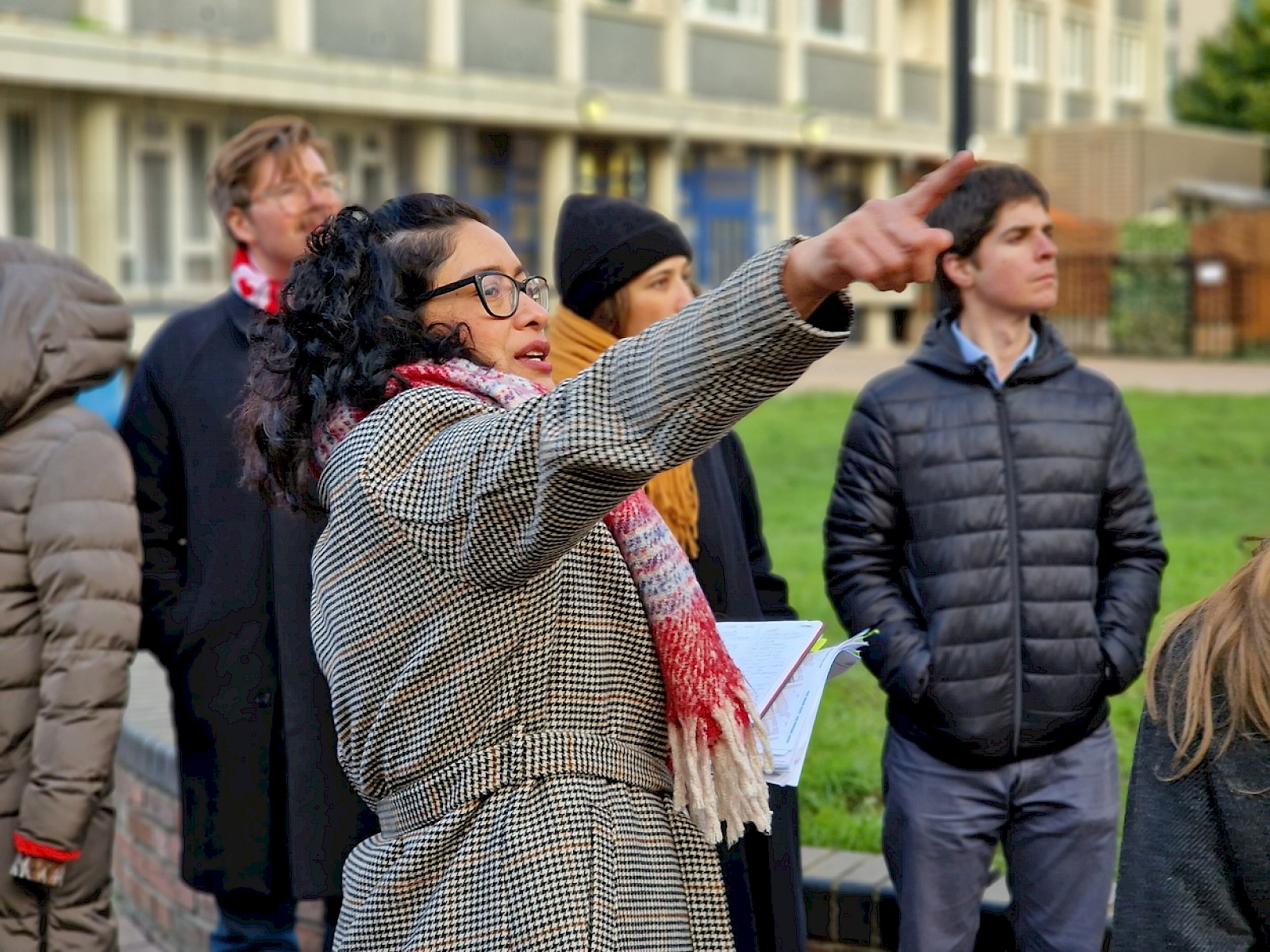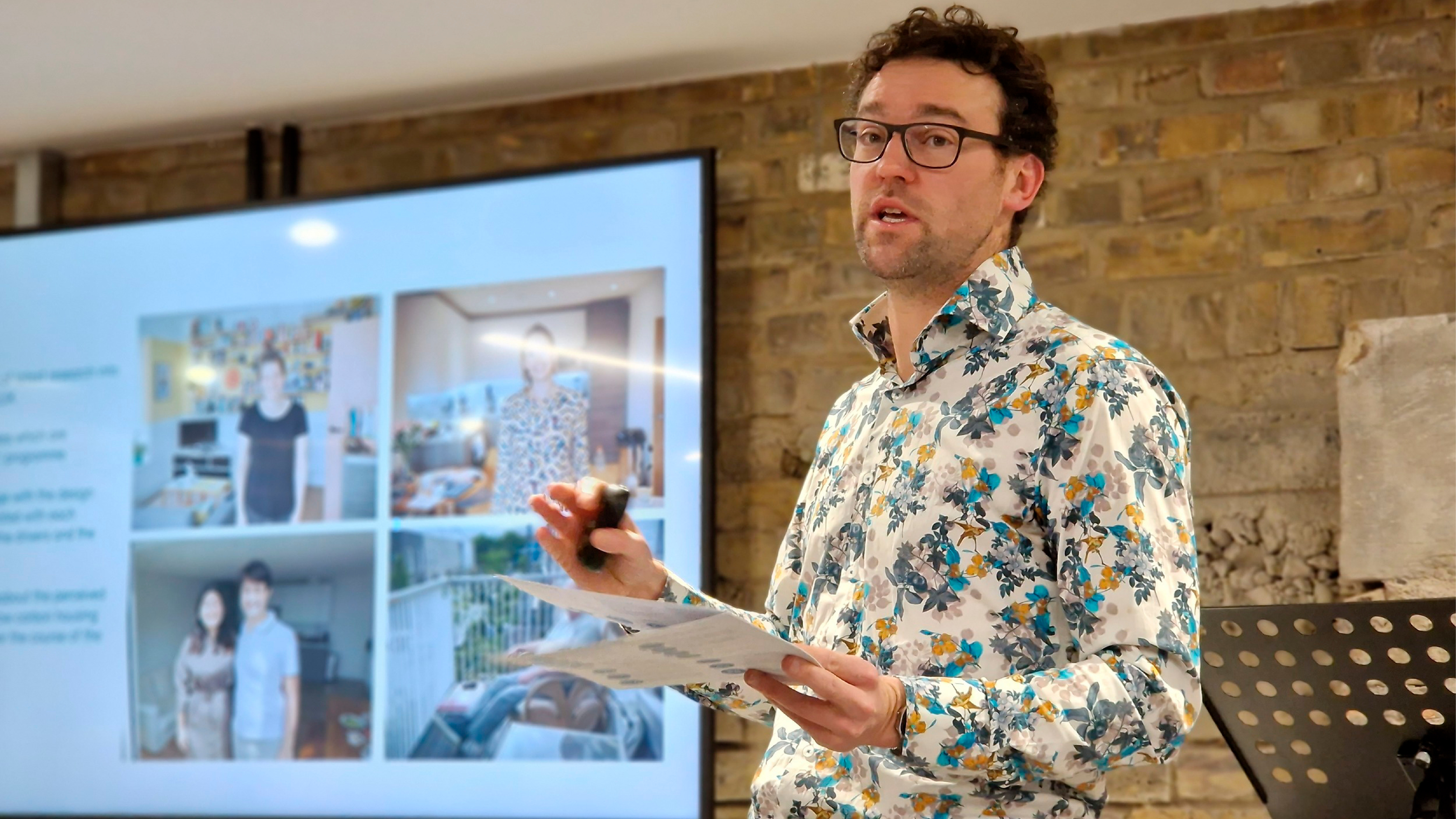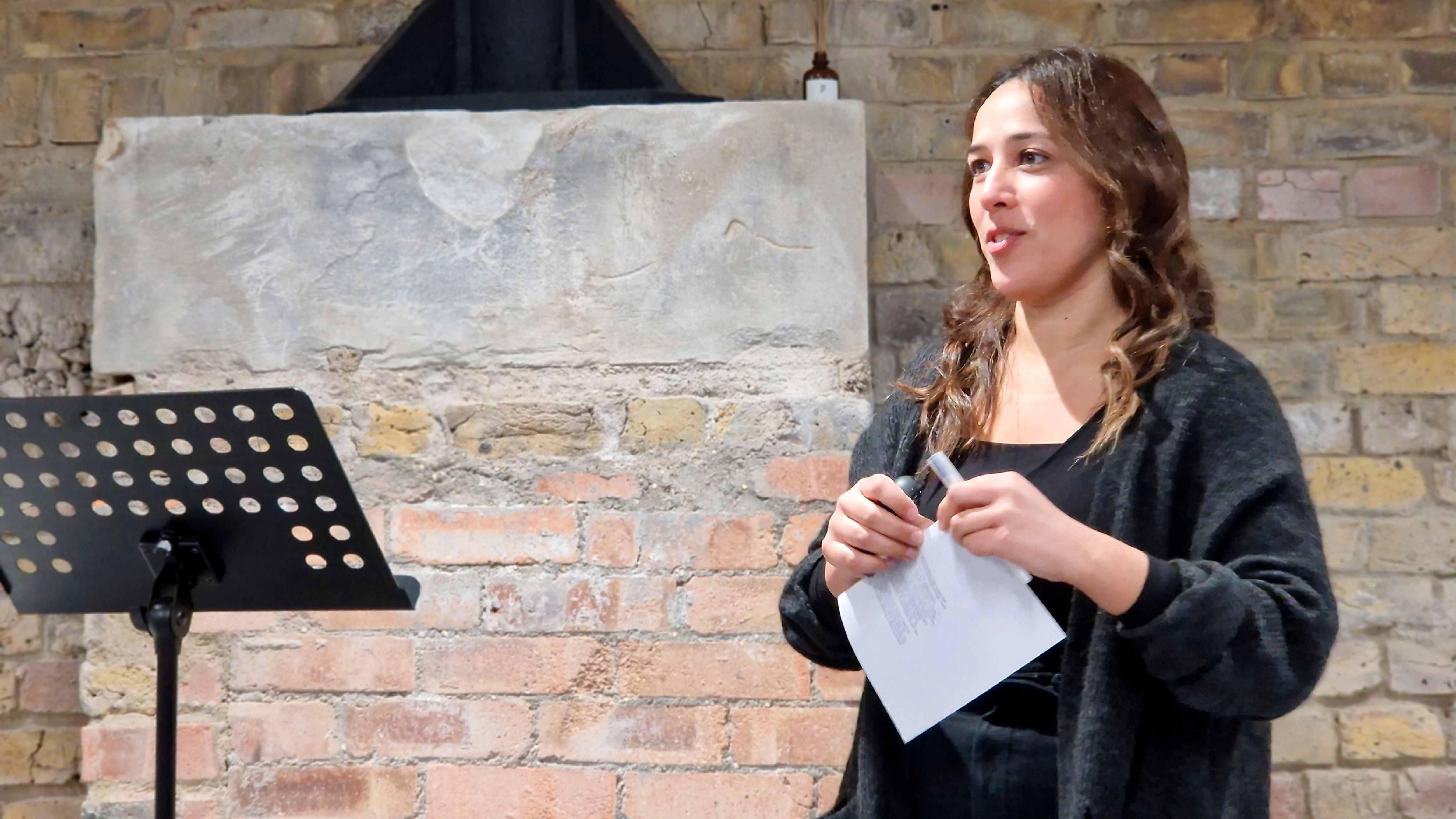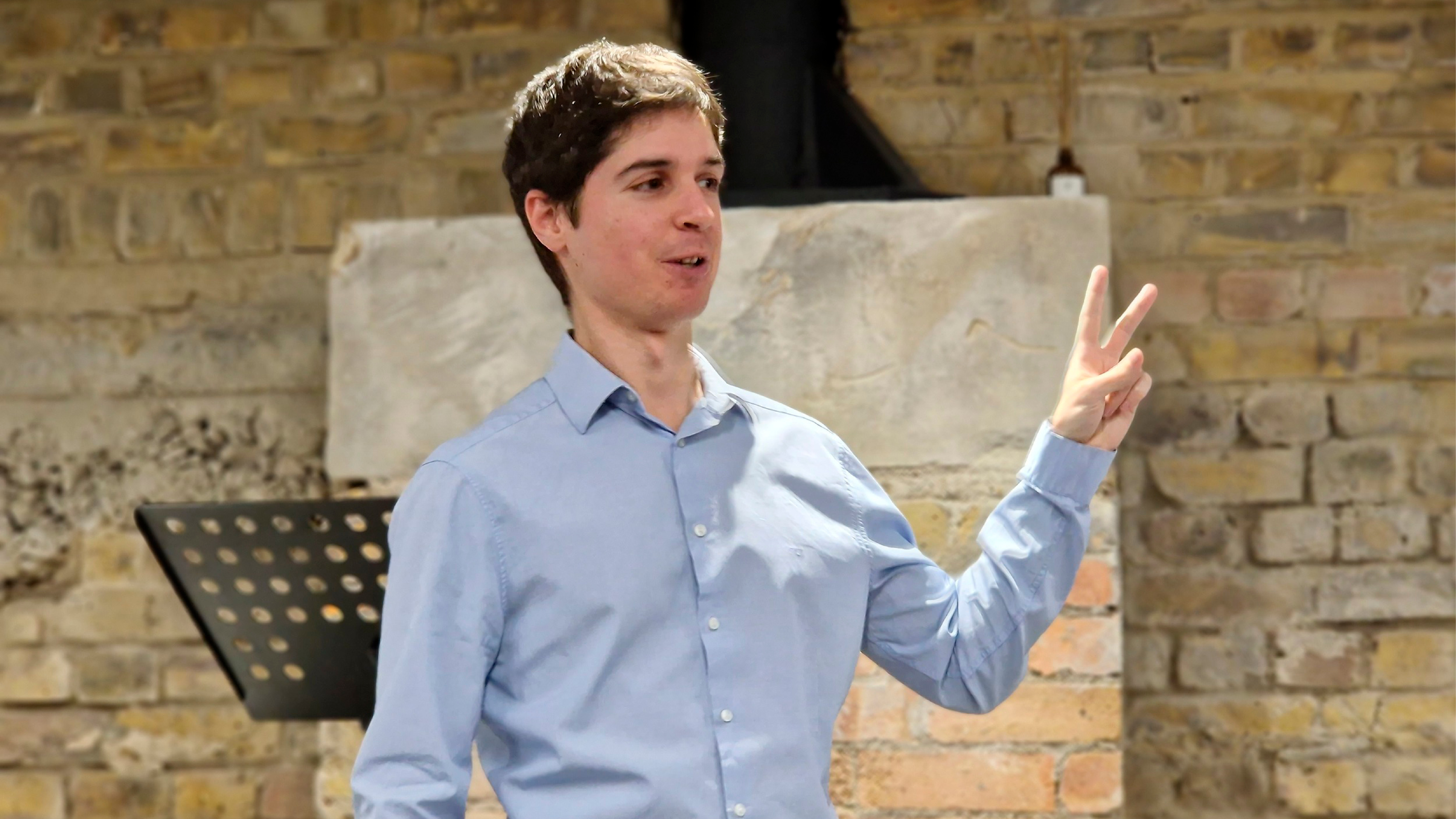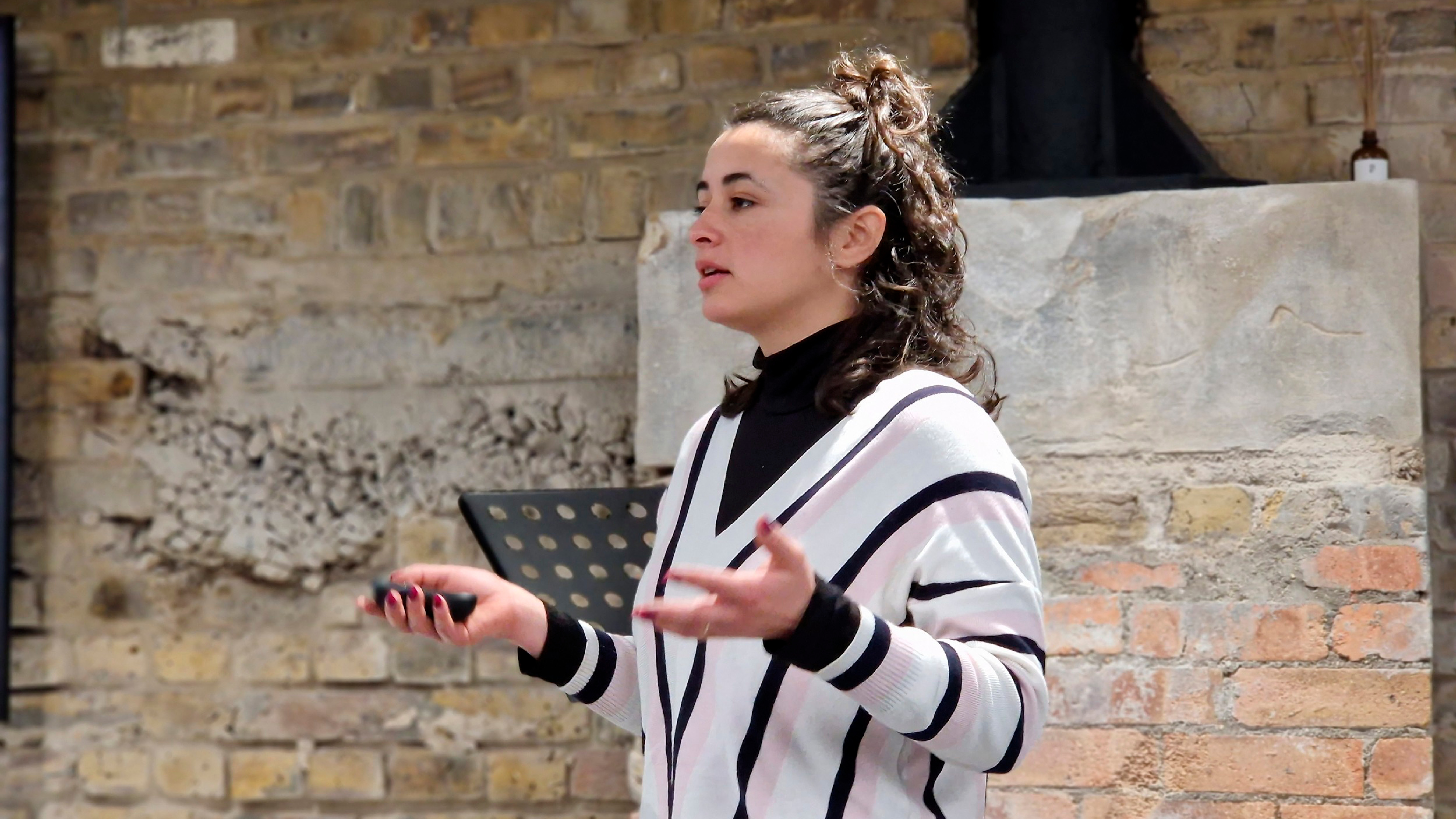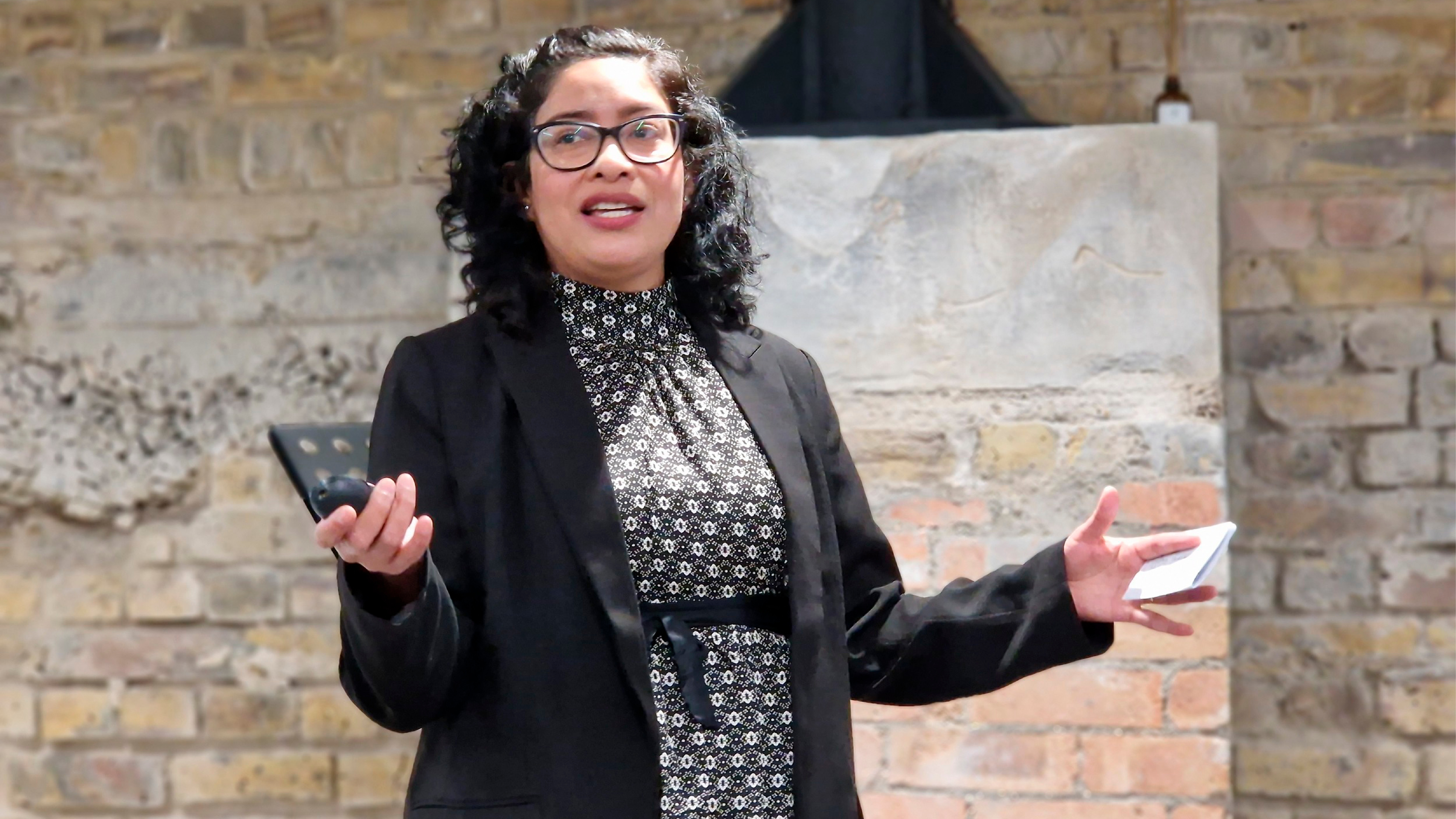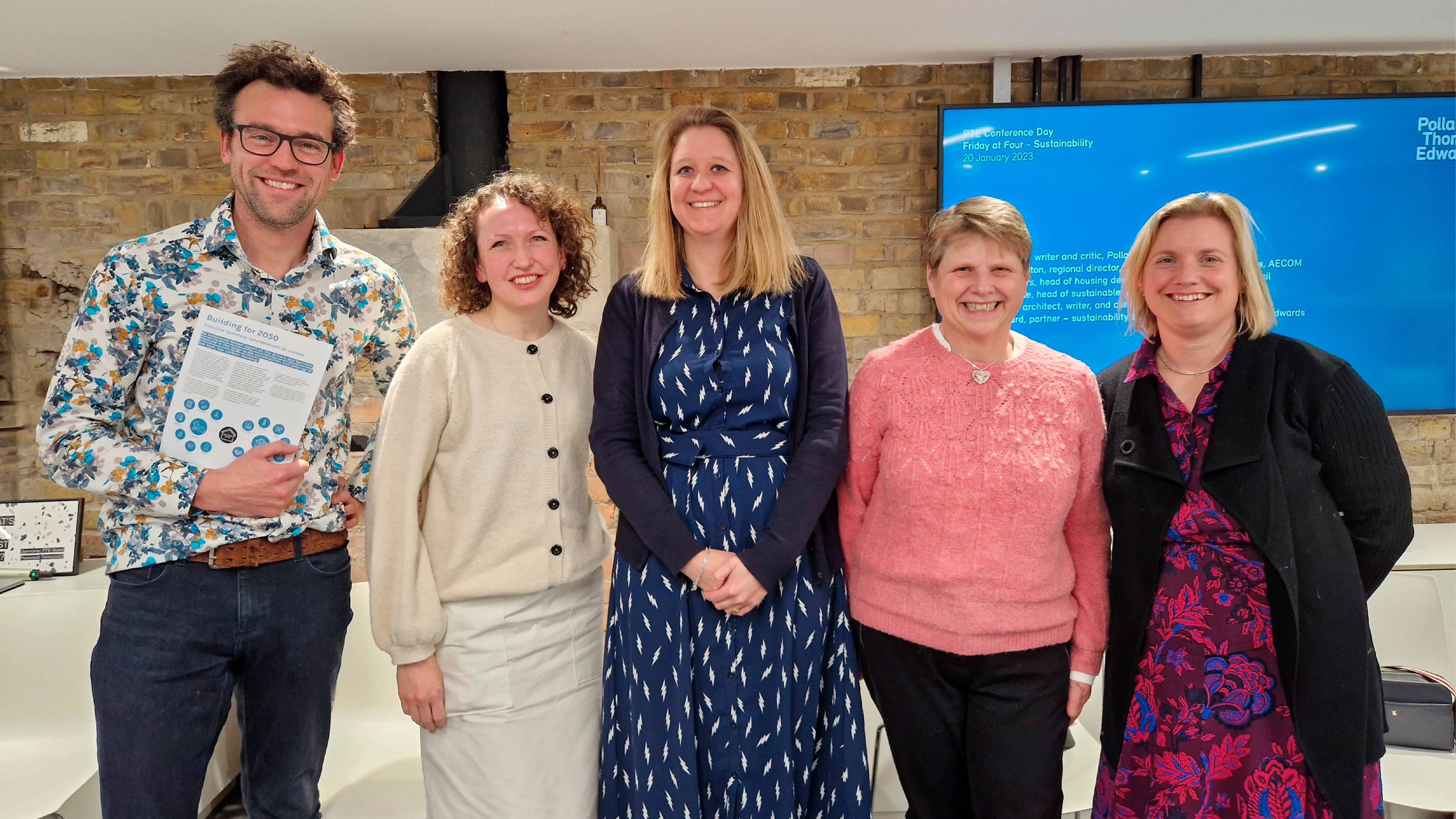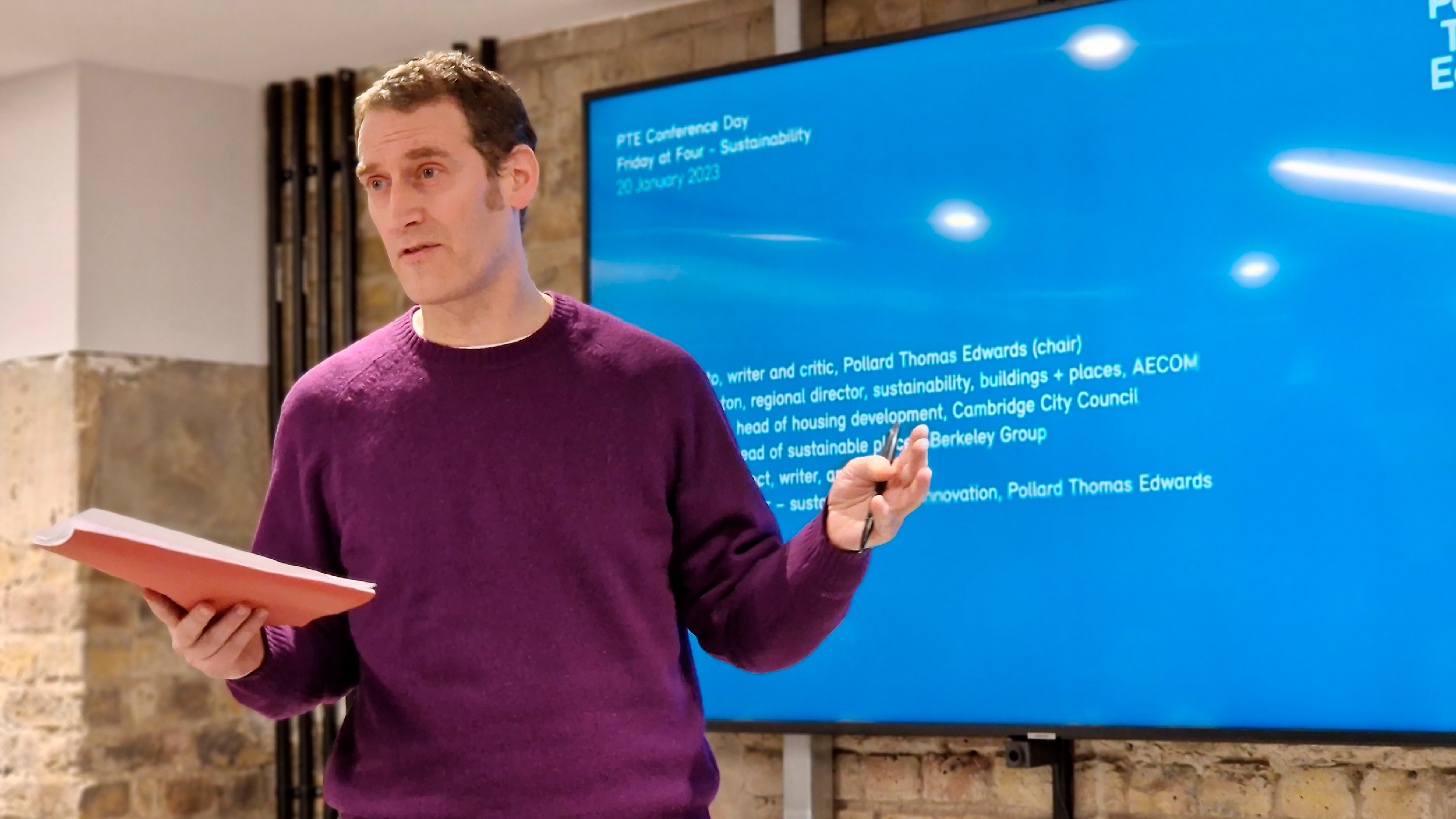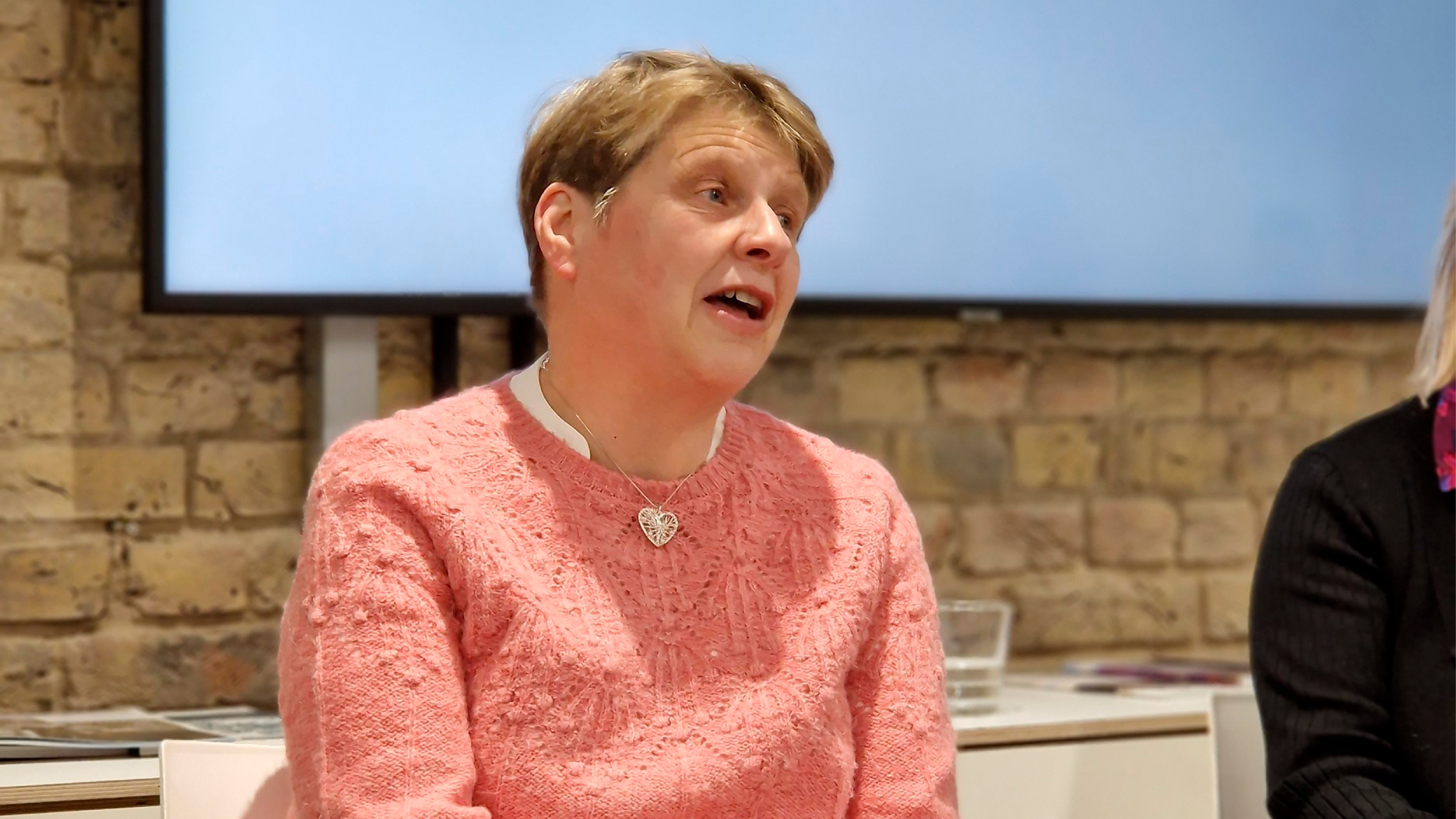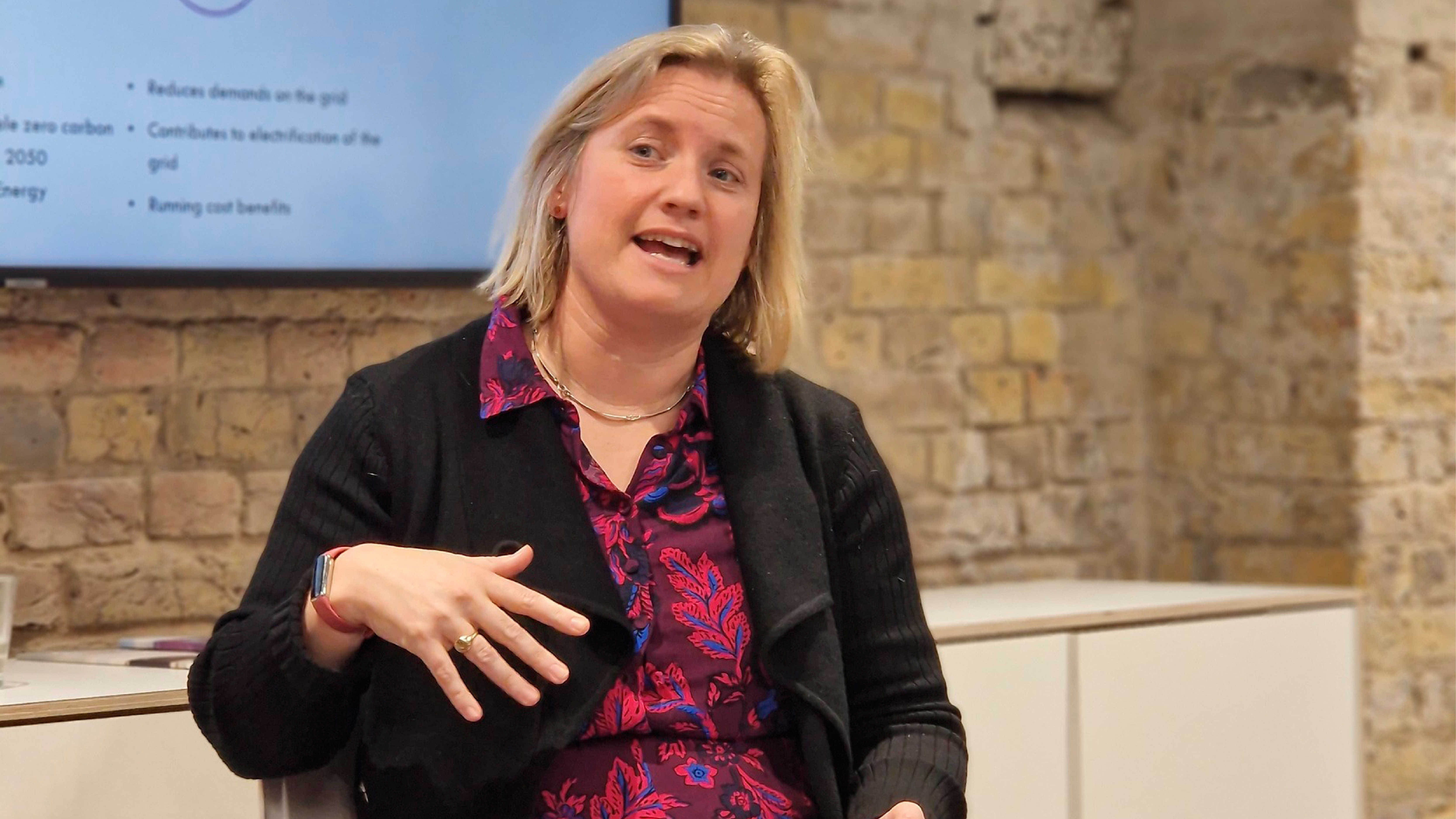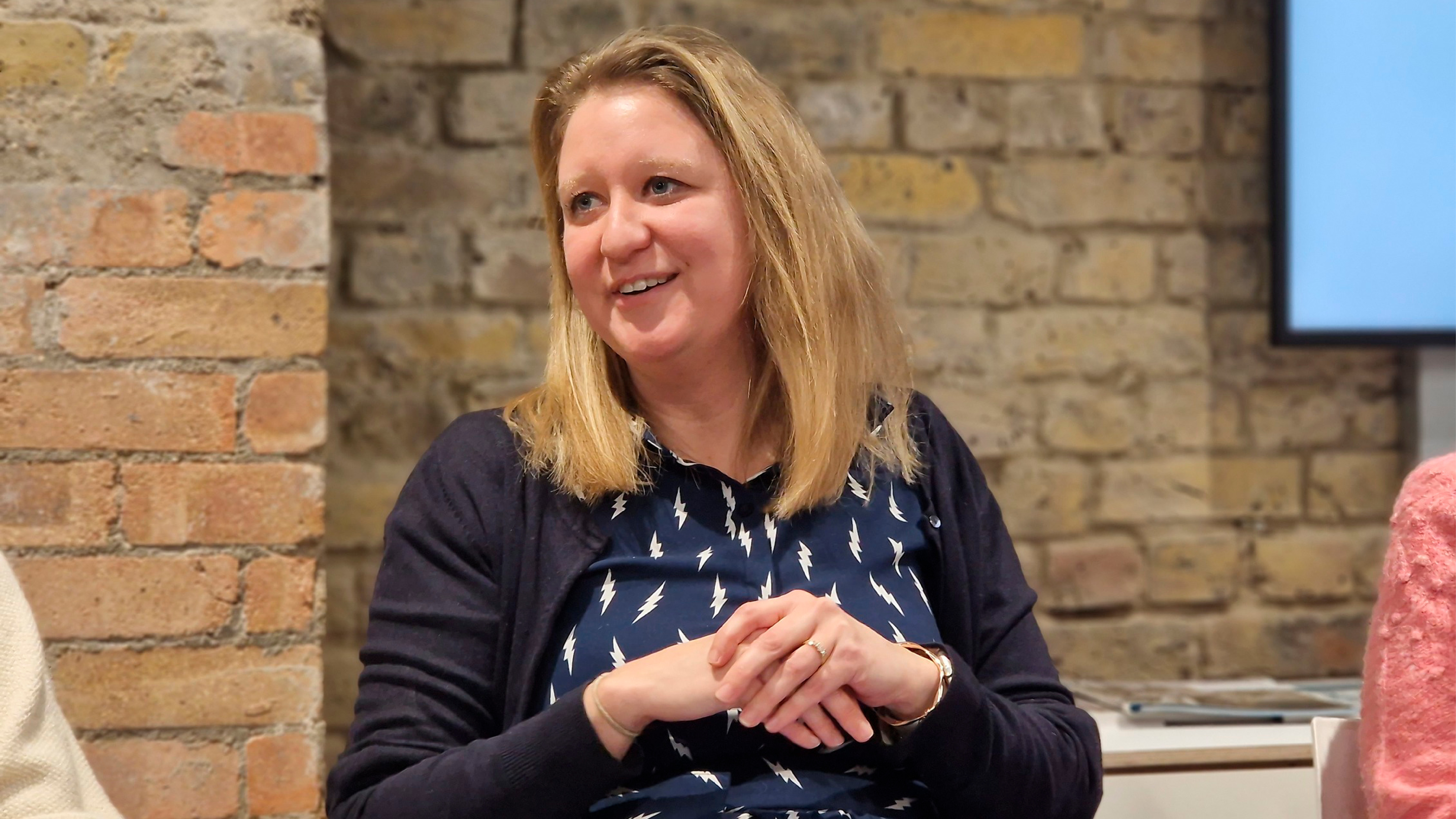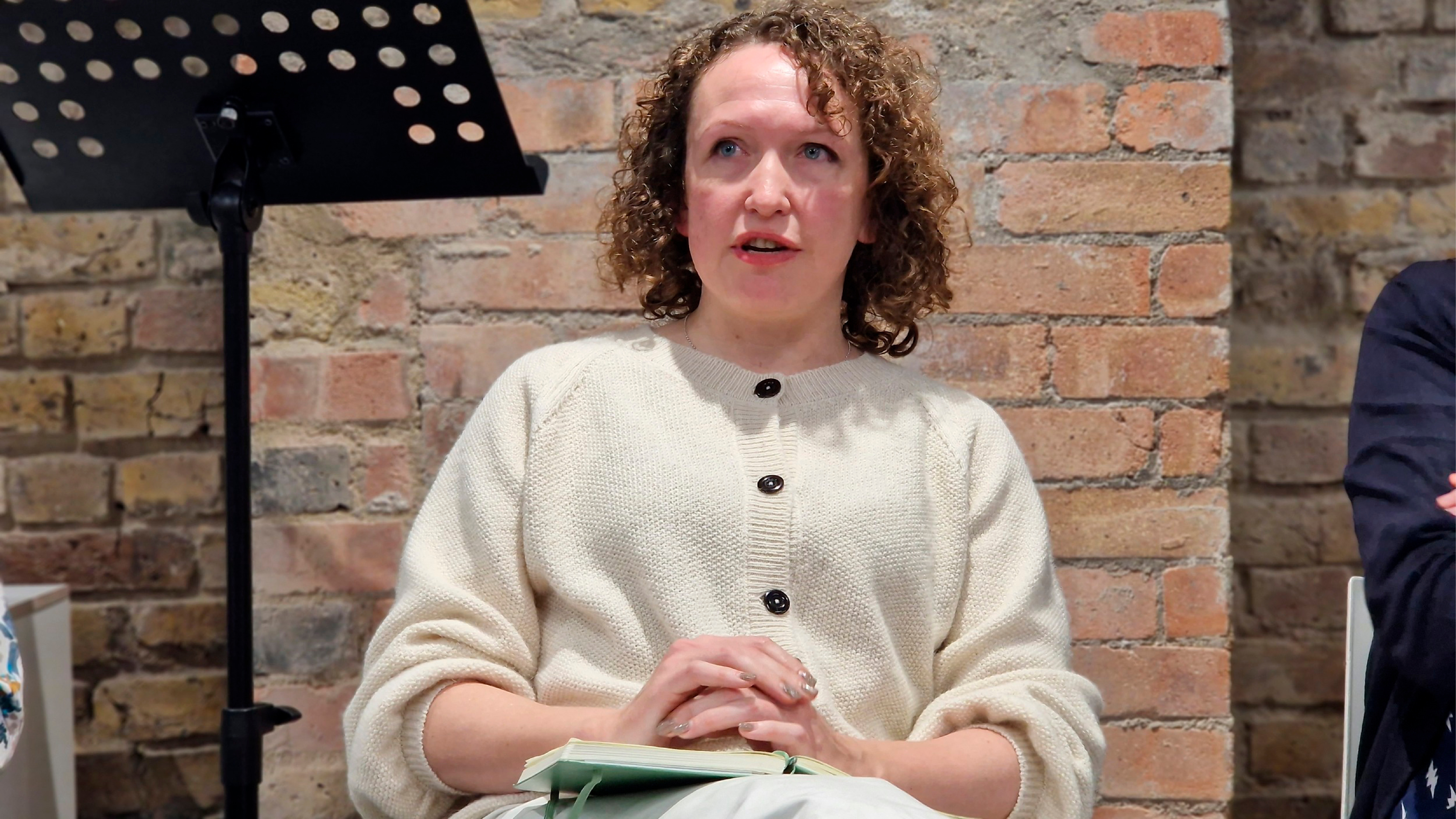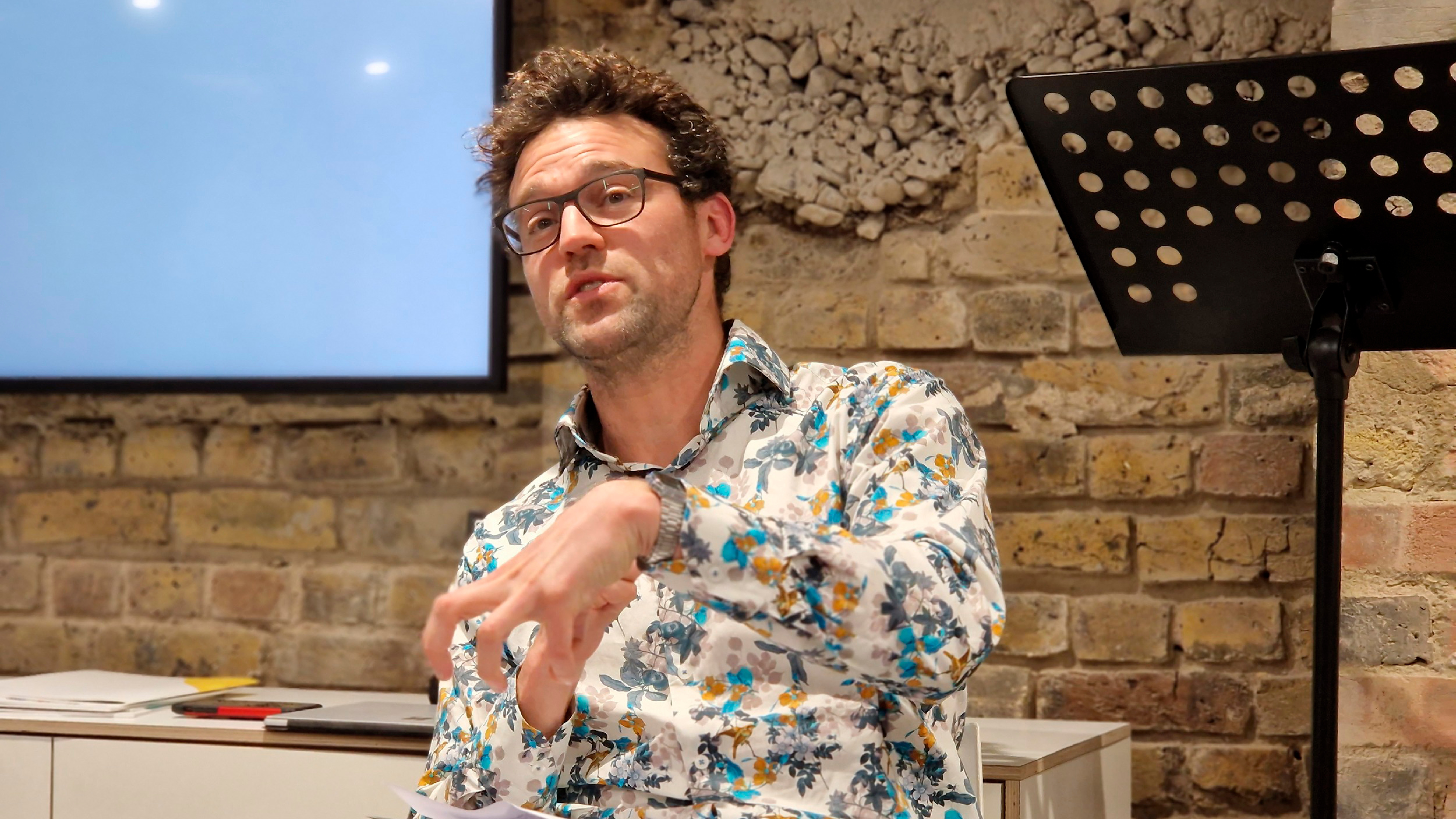The first conference day of 2023 addressed the thorny, ever-present, always vital topic of sustainability
Following breakfast (pastries, berries and yoghurt) partner Tom Dollard welcomed colleagues, and together with his team – Filipa Oliveira, Grecia Castillo, Joseba Perez, Gloria Vargas Palma - provided an overview of PTE’s sustainability strategy. Filipa reminded us of the urgency for everyone to fortify their zero carbon design skills, showing how a recent in-house survey highlighted both our expertise and the knowledge gaps we have (and encouraged us to attend her later talk focused on how we can integrate sustainable design with everyday practice!) Joseba focused on the importance of persuading clients to set aspirational carbon reduction targets at the brief-writing stage - and commit to certification.
Grecia explored retrofit – including a general definition (because sometimes it’s used as a catch-all term) – before unpacking retrofit culture in more detail. This highlighted light-touch and deep-green approaches, from building efficiently with MMC and minimising waste, to building nothing new, using only reclaimed on-site materials.
Gloria spoke about PTE’s two-year Knowledge Transfer Partnership project. This evidence-based social value study, in partnership with the University of Reading, will help us develop a toolkit to quantify POE data in housing, allowing social value outcomes to be incorporated into buildings at the design stage.
Partners Simon Whitley and Hamish Kilford-Brown gave an overview of their comprehensive report on retrofitting a ‘70s-built housing development of six Modernist red-brick blocks in South London. It covers a number of retrofit methods, from light touch (hybrid with newbuild) to deep-green (retrofit-only), as per Grecia’s introduction. As was made clear in the audience discussion that followed, calling on RIBA to ensure stage 1 carbon assessments (currently its stage 2) is an obvious way forward for the profession.
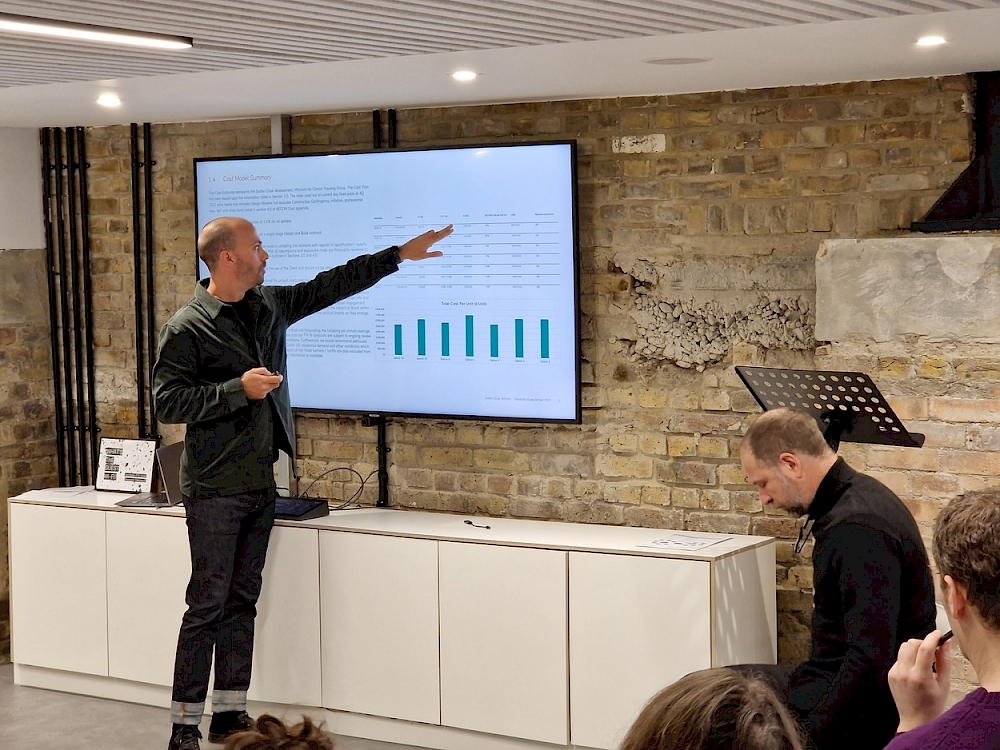
Partners Tricia Patel and Warrick Thomas with Joseba explored the Barnsbury masterplan. Approved in ballot by residents of the estate, it is the result of a comprehensive consultation programme and includes two design challenges: newbuild housing replacing 1960s-built homes in New Barnsbury and a full retrofit of existing well-built 1930s blocks in Old Barnsbury. This session focused on the latter and the potential to use EnerPhit – the retrofit version of the Passivhaus standard. The discussion covered the implications of internal and external wall insulation, the pros and cons and the major challenge of minimising disruption to residents to carry out the works.
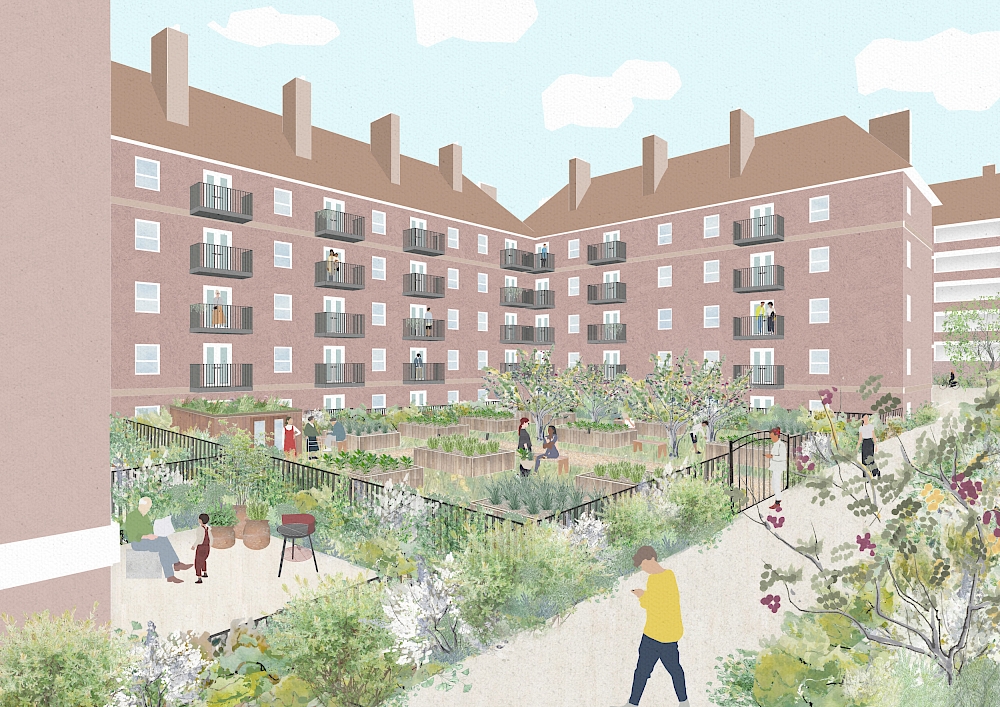
For the pre-lunch surgery, Filipa and Grecia outlined how PTE’s in-house sustainability roadmap, checklist, and toolkit ensures we ‘walk the walk’ when it comes to low and zero-carbon design. The importance of early-stage commitment to certification was reiterated; ‘shallow retrofits’ were compared unfavourably with deep, systemic retrofit design. The challenges of the latter were weighed too - from financing and the lifecycle of existing components to the impact on in-situ residents living through invasive domestic works.
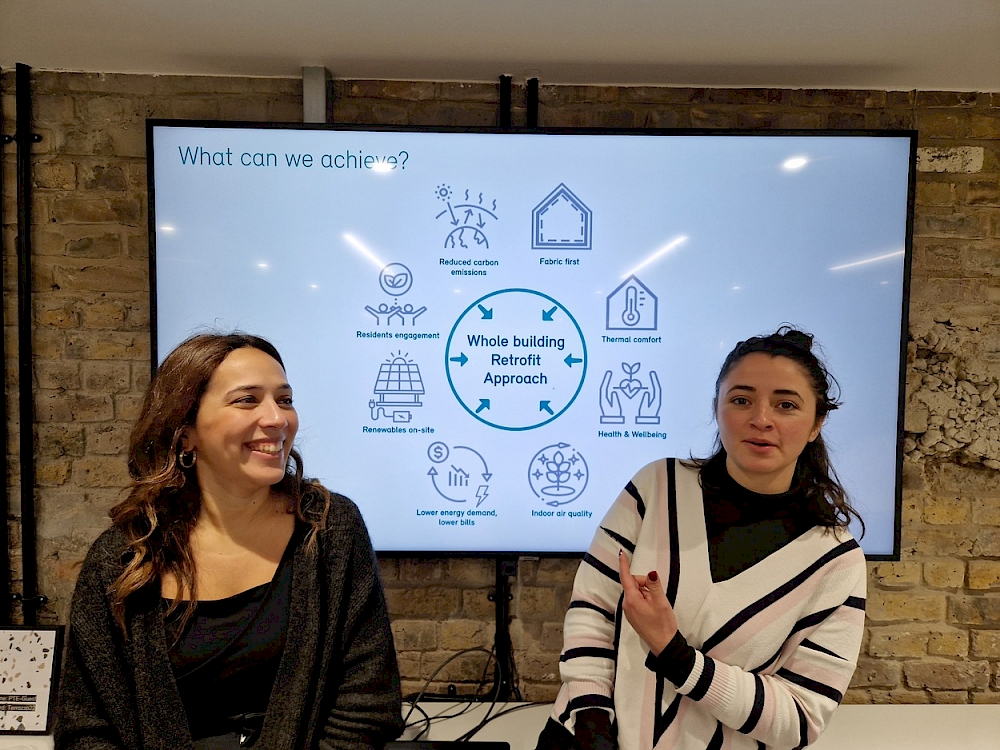
Conference day lunch (prepared by design workshop 5) had a strong Greek flavour with an expertly made spread of roasted halloumi, aubergines, tomatoes, and a pine nut tray bake. Authentic ingredients were sourced from far and wide: Halloumi from Cypress, cherry tomatoes from Italy and the aubergines from Greece - “Nόστιμο!”*, as the Greeks say. (*Delicious!)
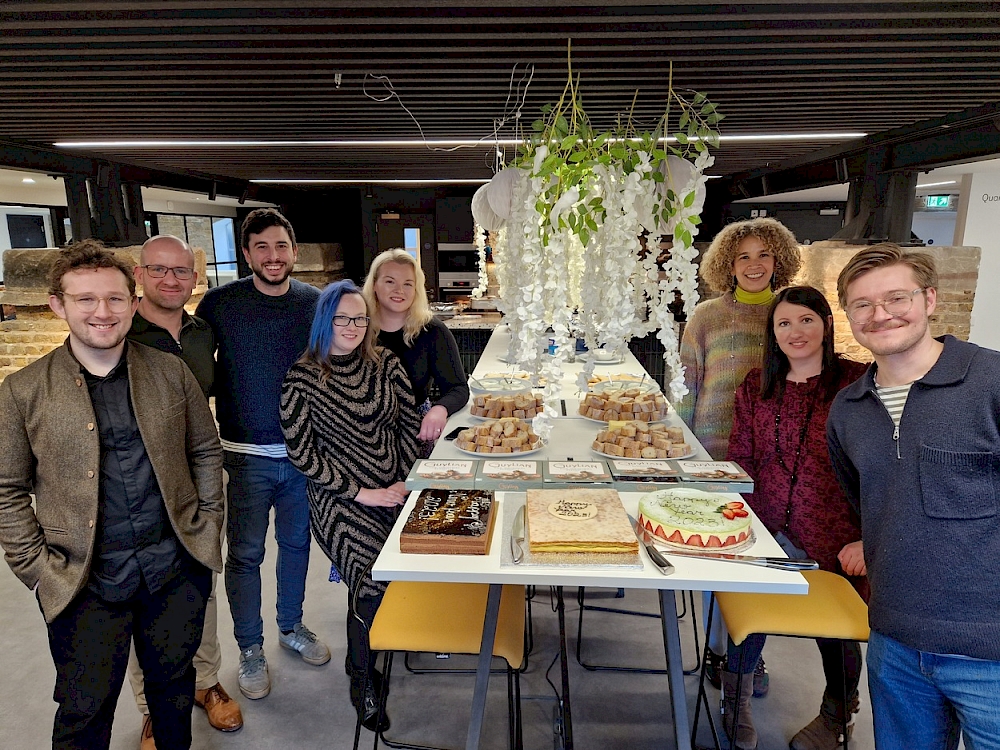
Kaye and the design workshop 5 brigade
Social value design lead Gloria led a post-lunch social value walking tour of King Square and Wharf Road, summarising resident feedback and lessons learned on each site. At King Square, an existing 1960s estate with 140 new mixed-tenure homes and enhanced public spaces, we learned that younger residents requested space for singing and dancing, and parks separated by age groups. At Wharf Road, where Gloria summarised client Peabody’s POE findings, we heard that despite an overall high satisfaction rating, residents expressed concern over security and privacy.
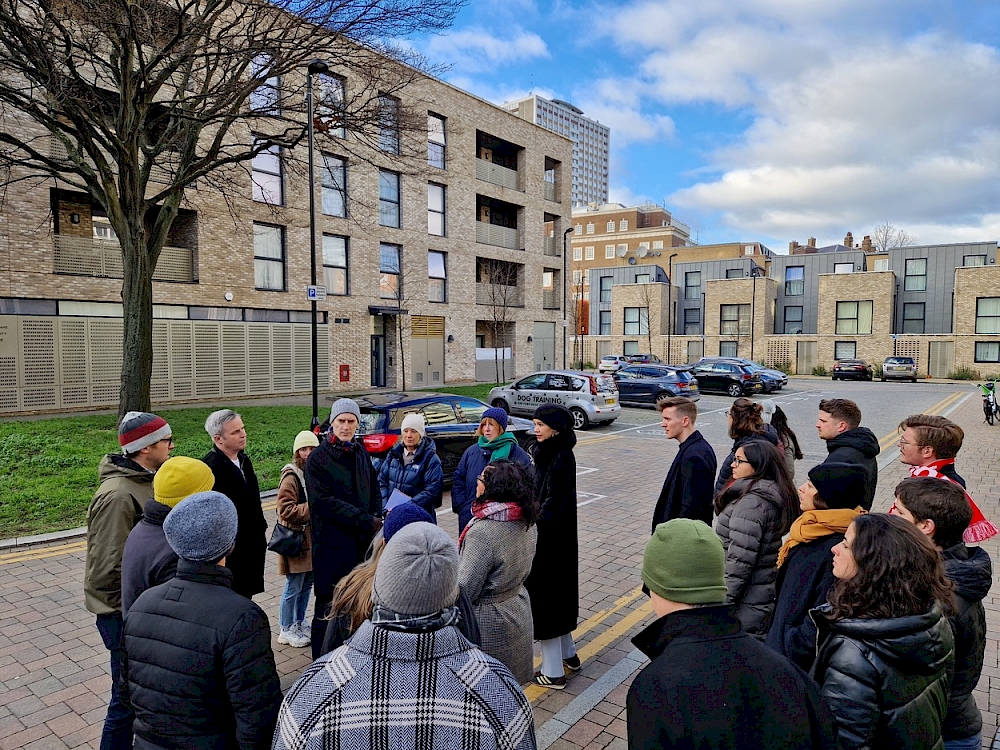
Gloria Vargas Palma, Pollard Thomas Edwards
Gary Nicholls from Briary Energy outlined changes to the Regs – from the uplift to Part L, which went into effect in June 2022, and which means plots complying with previous regulations need to be on site by June 2023, or risk complying to two different specifications to the update to Part O - primarily that the reduction in openable windows may lead to overheating. During the Q&A session that followed, Gary concluded “on site education” will be crucial to force a change in attitude from subcontractors, with insulation and airtightness “paramount” to meeting Future Homes standards.
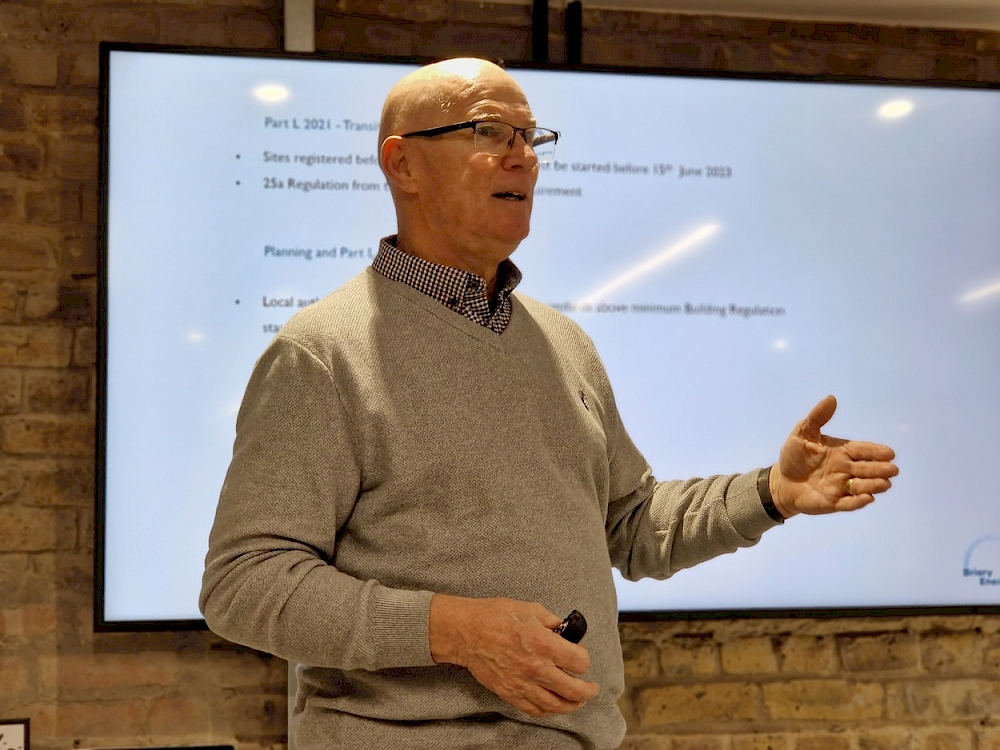
Gary Nicholls, Briary Energy
Friday at Four
Four guest panellists joined Tom Dollard on stage, with PTE writer and critic Rory Olcayto chairing a debate on low and zero carbon housing. Alison Crompton, regional director of sustainability, buildings and places at AECOM, warned that yes, we can celebrate the growing recognition of MMC as a methodology, but the need for increased awareness, and upskilling, persists. Cambridge City Council’s head of housing development, Claire Flowers, outlined the city’s zero carbon homes strategy and questioned the usefulness of Passivhaus certification. “Is it a barrier?” she asked. Louise Clarke, head of sustainable places at Berkeley Group, said despite her firm’s commitment to MMC, there are still high levels of embodied carbon involved while retrofit, and reuse expert Ruth Lang (author of Building for Change) called for a nimble and responsive approach embracing collaboration with the construction sector and beyond. PTE’s Tom Dollard concluded, extolling form factor, orientation, and fabric first approaches to reduce carbon loads.
Friday at Four takeaways




